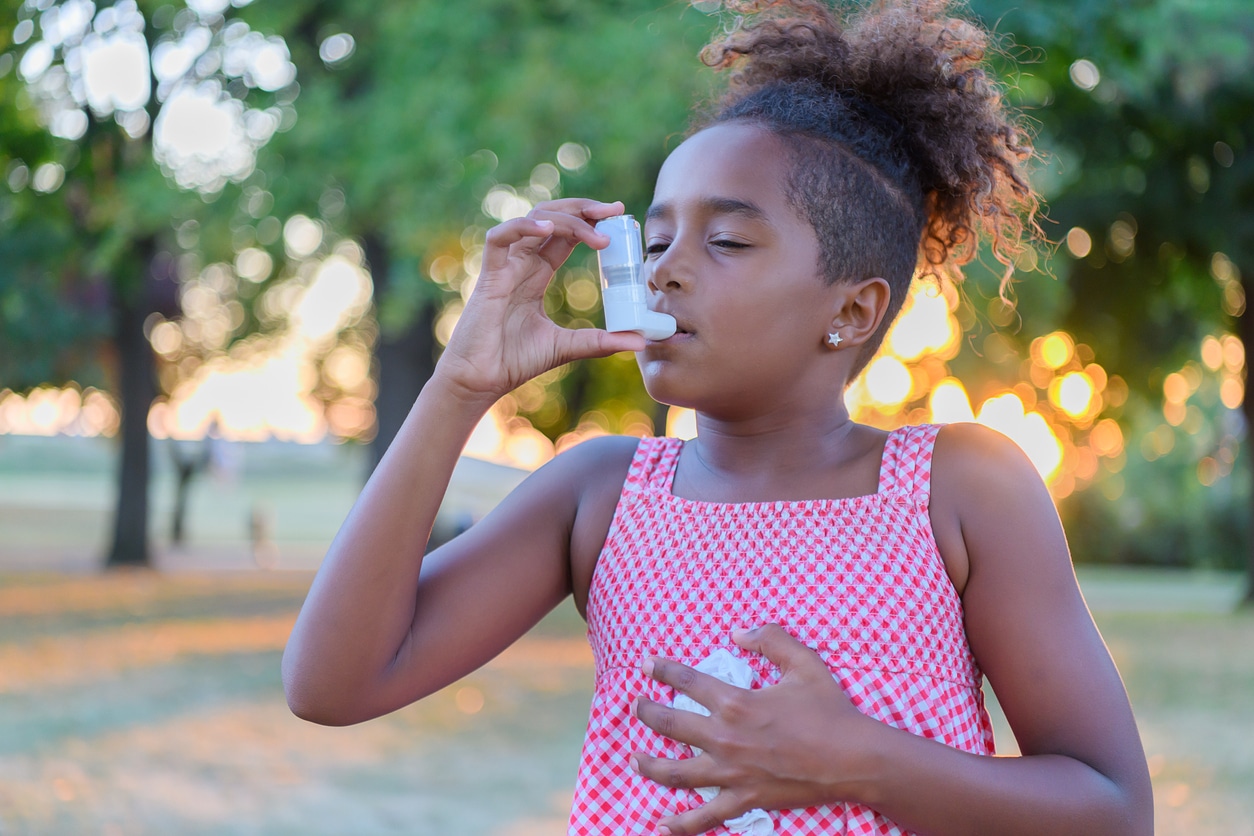Educating yourself on asthma symptoms in kids can benefit your child’s health, as well as give you the necessary warning signs of an asthma attack. KidsStreet Urgent Care is here to give you all the details on asthma symptoms in children.
What Is Asthma in Children?
Asthma is a chronic lung disease and condition that affects over one million children in the United States. While not curable, asthma in kids treatable.
What Causes Asthma in Kids?
There are many causes of asthma in children. Lifestyle and environmental factors may have a great effect on your child’s asthma, as those who live in certain areas may be more susceptible to developing asthma. Risk factors for asthma include:
- Living in an area with high pollution
- Frequent exposure to tobacco smoke
- Frequent exposure to dust mites and pet dander
Allergies that attack the immune system can also increase the risks of your child developing asthma. Additionally, if your child experiences frequent respiratory infections or viral infections, their chances of developing asthma are higher.
Asthma Symptoms in Kids
Due to the number of children that suffer from asthma, the symptoms are usually very easy to identify. Common asthma symptoms in kids include:
- Difficulty breathing
- Whistling sound when breathing
- Wheezing when breathing
- Chest tightness
- Persistent cough, especially when lying down
- Quick breathing
- Colds that settle in the chest
If your child is suffering from these symptoms, KidsStreet Urgent Care can help them heal and feel better, FAST! We offer asthma treatment at our pediatric urgent care for children.
Asthma Attacks
If your child has asthma, they may be at higher risk for experiencing asthma attacks. Asthma attacks are an additional asthma symptom that children may face.
An asthma attack occurs when the tubes that carry oxygen to the lungs become inflamed, and begin secreting an excess of mucus. This makes it difficult for the child to breathe. Symptoms of an asthma attack include:
- Sudden labored breathing
- Tight chest
- Shortness of breath
- Wheezing
They often happen suddenly when exposed to an allergen such as:
- Air pollution
- Tobacco smoke
- Pollen
- Dust mites
- Pet dander
If your child is experiencing a severe asthma attack, seek medical care immediately.
Although not all children with asthma will suffer with asthma attacks, it is important that you know the triggers and symptoms of them. If your child experiences asthma attacks frequently, you should develop an asthma action plan which consists of the medications they take, triggers of their asthma attacks, and asthma attack management. Make sure that anyone who takes care of your child has access to this plan to ensure quick treatment and relief for them.
Reducing Symptoms of Asthma
You may find that your child only experiences asthma symptoms at certain times of the year or in specific areas. This may be due to exposure to an allergen of some sort that acts as an asthma trigger for your kid. To reduce their symptoms, try recording the conditions in which they begin to have symptoms and avoid these situations.
Diagnosing Asthma in Children
If you believe your child may have asthma, it is important that you seek a diagnosis. To diagnose asthma, your child’s healthcare provider will conduct a test where the patient will blow hard into a tube. This test measures the airflow in the tubes that carry oxygen to the lungs. This test can also tell the provider if your child is developing asthma.
Treating Asthma in Kids
Although asthma is not a curable condition, there are many treatment options available for kids with asthma. Asthma medicines and control medicines are the most common and can be used long-term. Quick-relief medications such as inhalers may also be prescribed to your child.
Turn To KidsStreet Urgent Care
Are you noticing asthma symptoms in your child? KidsStreet Urgent Care can help! To visit one of our clinics, register online. You can wait from home or your vehicle until we are ready to see you. We’ll send you a text when it’s time to head to our health care clinic.
Walk-ins are always accepted; however, please be aware that registering online reduces in-clinic wait times. Walk-ins are added to the same queue as those who register online.

